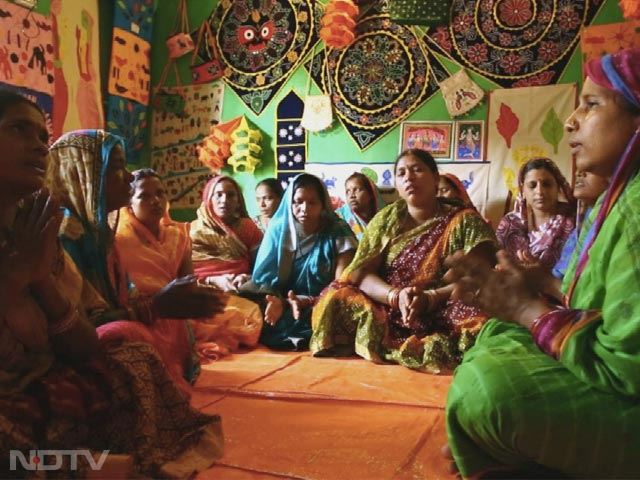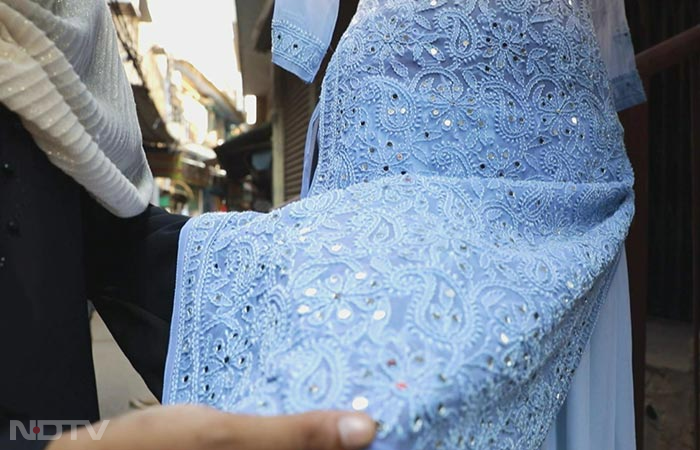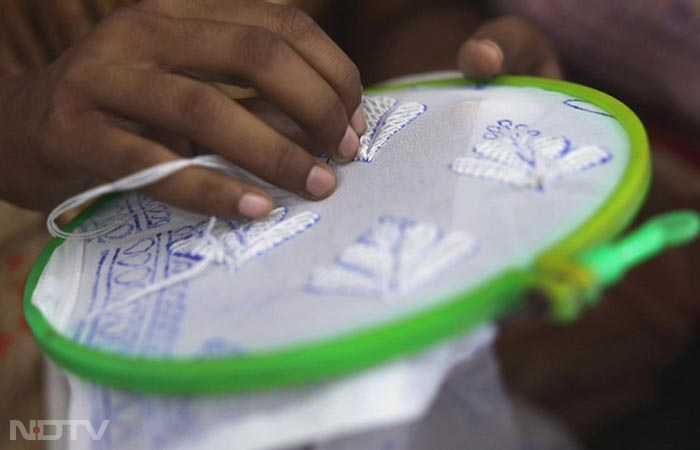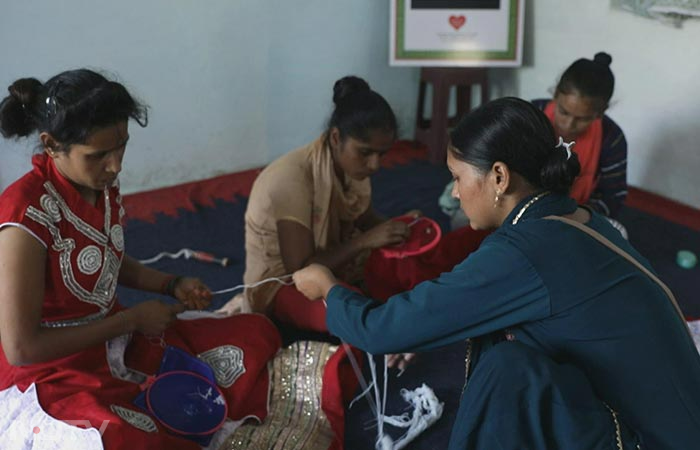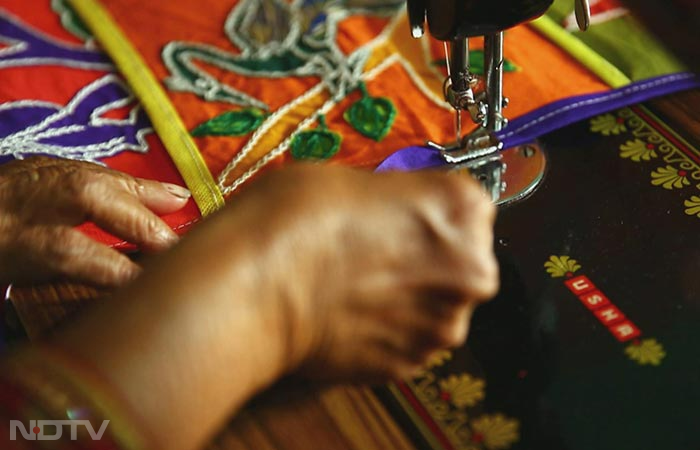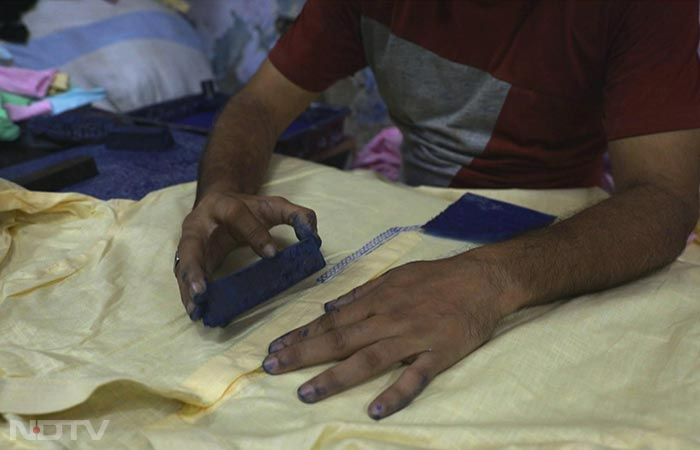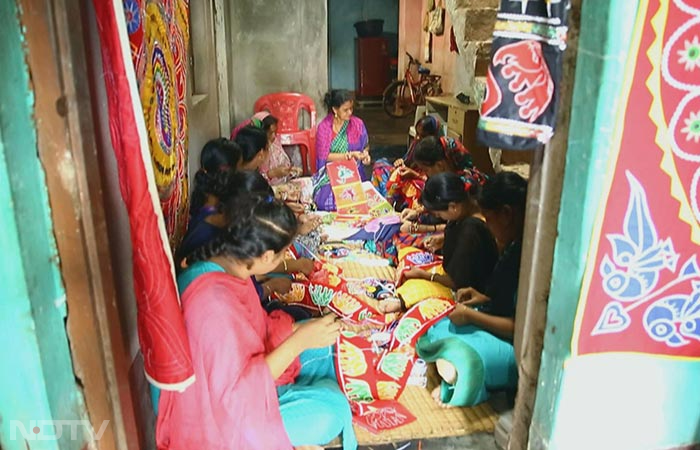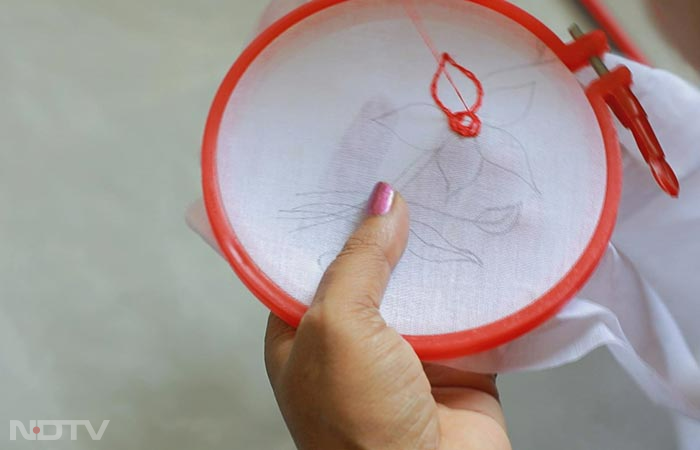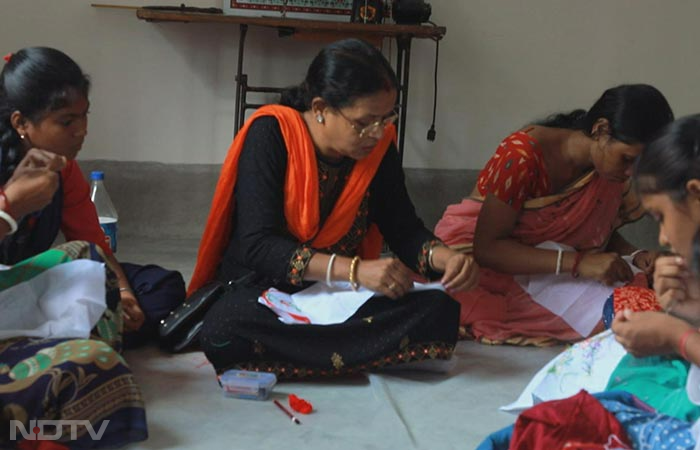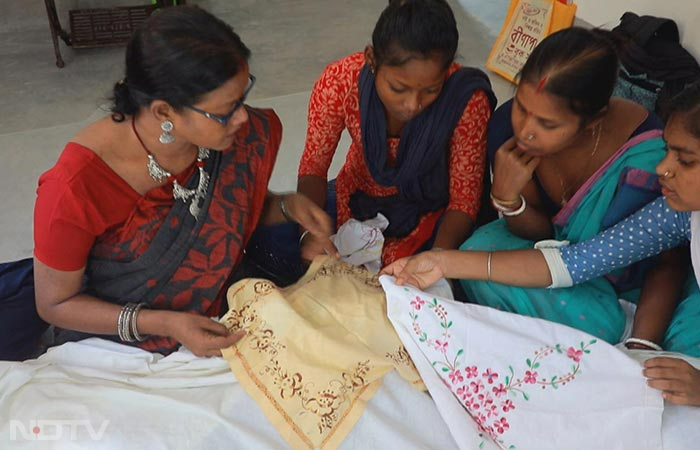In UP, West Bengal And Odisha, USHA Silai Schools Are Working With NGOs To Empower Rural Women
The rural women of Uttar Pradesh, Odisha and West Bengal have undergone stitching and sewing training in USHA Training Centres, and learned new and traditional art forms of stitching garments. Most of these women are now financially independent and are imparting their knowledge to other women in their villages.
-
At Binita Bhatta's Silai school, the day starts with a hymn to Lord Jagannath. Ms Bhatta is not only helping other women stand on their feet but is also showing them a new way to live life. USHA gave a boost to mS Bhatta's skills in Chandua patch work. Now, she is not only writing a new story on the strength of these women, but is also rescuing other women from financial crises.
-
Lucknow's bustling 'chowk' market is known for its shops that sell garments that have clothes with traditional embroidery called 'Chikankari'. It is a famous and popular embroidery work that originated in the city and is known in India and across the world.
-
Gulab Jahan comes from a very conservative family in Hardoi. She learned the art of Chikankari with the help of USHA and is able to earn between Rs 7000-8000 a month. She takes orders for Chikankari embroidery, trains women in the art for a certain fee, and also does repair work on sewing machines.
-
Chandua is synonymous with PipIli, in the Puri district of Odisha. It is an art form that is being kept alive in practically every household. It is a means of livelihood for many people, and now USHA is playing an important role in keeping this traditional applique work alive by training rural women.
-
USHA's Training cum Production Centre (TCPC) at Uttar Pradesh's Hardoi has given many other women in the area a shot at turning their lives around by learning a new skill set. At this centre, the women not only learn how to stitch and service sewing machines, they are also taught Chikankari.
-
Swarnlata Panda has been making Chandua art on clothes for the last 15 years, using embroidery to make new products and create new looks for clothes. After undertaking training with USHA for 9 days, Ms Panda is now teaching these skills to women from 11 families through the USHA Silai school. In fact, the Odisha government has now made her their own trainer.
-
Kantha is an art form passed down for generations from one set of women to another. Often it wasn't done for commercial value but to tell stories and became a form of intricate designs with themes depicting folk art, traditional beliefs, epics and rituals
-
Ms Rinku Mondal's sister, Tinku Mondal Adhikary, the fact that she stays in a remote area meant that opportunities for additional income were very limited, more so for women. So, stitching supported her family but it was kantha embroidery that gave her the extra earning she needed.

